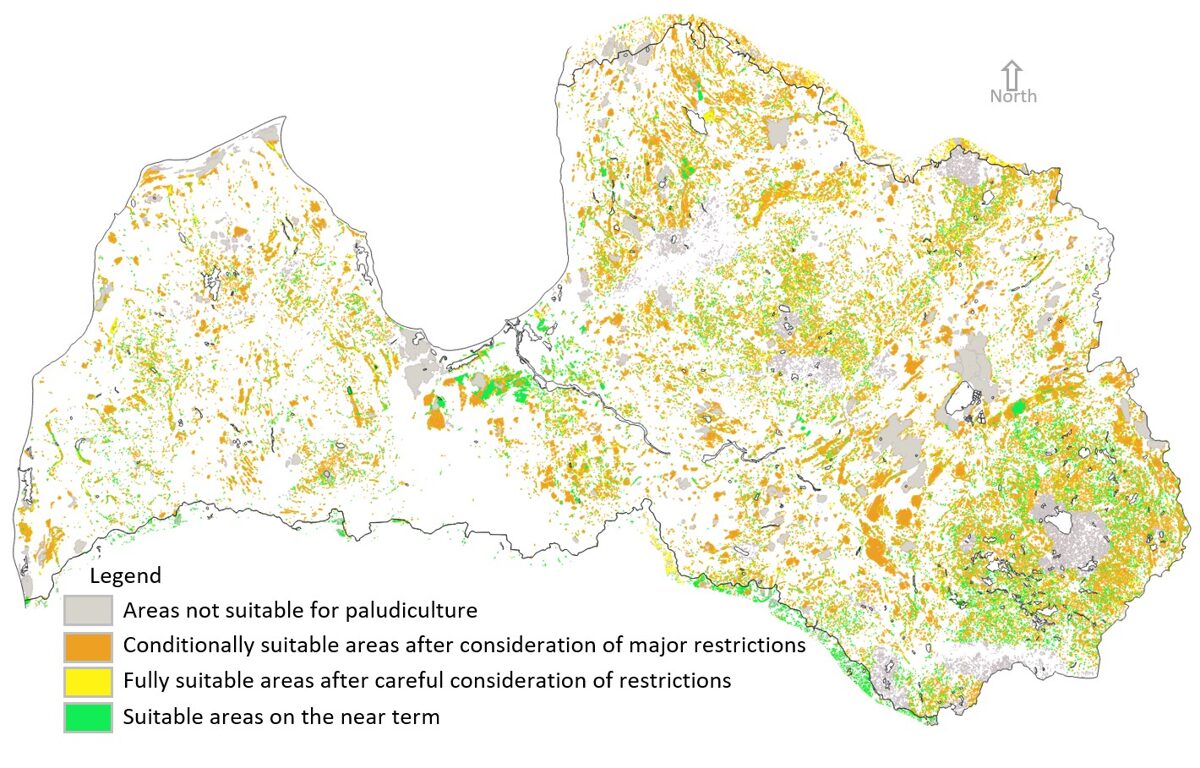Paludiculture in Latvia
Paludiculture is agriculture and forestry on wet and rewetted organic soils and peatlands
Paludiculture is agriculture and forestry on wet and rewetted organic soils and peatlands
Although methane is one of the potent greenhouse gases that emits from rewetted peatlands, it is important to consider the whole cycle of methane. Rewetted peatlands benefit to climate change mitigation as they act as carbon capture and storage sites under wet conditions.
When the peatsoil in agricultural land is regularly flooded and wet, one option is to plant it with alder. This video shows one such example from the Dobele region near Lake Svēte. The land is regularly flooded and difficult to manage. 5 years ago he planted 4 ha of alder with funding from the Rural Support Service.
Lake and peatland research centre in collaboration with the partners from Germany, Estonia and Lithuania are implementing climate & biodiversity friendly EUKI project "Carbon capturing by Baltic peatland farmers - Practical exchange for paludiculture & peatland carbon farming". Project will last until June 2024 and hence, more results and publications are yet to come. Stay tuned to hear more soon.
Although the term “paludiculture” might seem new in Latvia, the cultivation of reed canary grass and black alder on wet organic soils has been practiced for decades. Some Latvian landowners have been engaged in these cultivation practices for years, even if they might not have been familiar with the term “paludiculture” or the associated environmental and climatic benefits.

There are more than 111,390 ha suitable for paludiculture implementation on organic soils at this very moment. After careful consideration of restrictions additional 65,781 ha can be used. Major restrictions apply for 142,936 ha, i.e., potential sites for paludiculture under specific requirements.